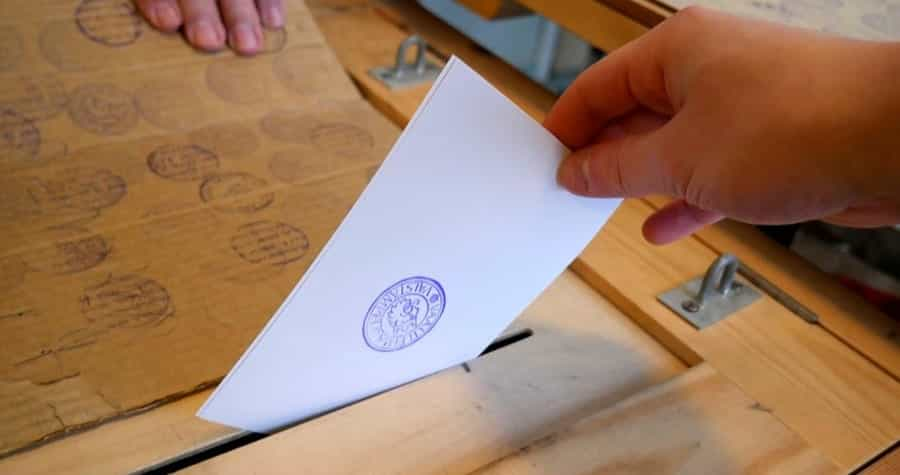Applying cutting-edge technology can be extremely challenging, especially when the technology itself is not trivial to explain.
It is also much harder to raise awareness for technology that is extremely complex and highly theoretical. And, in order for the adoption and use of any technology, awareness is key. One cannot build ground-breaking applications if you are unaware of the latest theoretical constructs.
One example of such a technological construct is that of zero-knowledge proofs (ZKPs). This is a ground-breaking technology that has numerous applications for blockchain and non-blockchain use cases.
In this short post, we will take a look at some of the most relevant use cases for the technology in today’s day and age.
Overview of Zero Knowledge Proofs
ZKPs are cryptographic methods that allow someone (the verifier) to validate a claim done by a second party (the prover), without requiring the prover to reveal any underlying information about the claim. Decentriq created a blog series on ZKPs if you wanted more information.
ZKPs have only recently gained more public attention with the rising interest in blockchain technology, despite the technology being first described by Goldwasser, Micali and Rackoff in 1985, over 20 years before the publication of Satoshi Nakamoto’s whitepaper on Bitcoin.

Only now in 2018, more than 30 years after its inception, is it being widely used in a practical way. It also has a number of high-profile backers including Google’s co-founder above.
ZKPs Use Cases
Data integrity, data privacy, and verified computing are key challenges and opportunities in a technology-driven environment.
Whenever we exchange data, we are exposed to the possibility of a data breach. Moreover, the data receiver has to ensure the integrity of the data that is being sent his / her way.
This then presents us with a perfect use case for zero-knowledge proofs (ZKPs) and their verifiable privacy-enhancing technology.
Of course, it is harder to understand the implications of such technology from a purely theoretical perspective. Hence, we have decided to gather three of the most relevant use cases of ZKPs today.
Zero-knowledge is a transformative technology, with applications ranging from on-chain scalability and anonymous voting to preservation of sensitive information in B2B data exchanges - Valentin Ganev
Anonymous Verifiable Voting
When it comes to distributed ledger technologies, establishing clear governance protocols has always been difficult. To ensure appropriate on-chain governance structures, anonymous and verifiable voting is crucial.
Voting is also an essential part of every democracy from that of a country down to the shareholder participation of a company. Hence, with nations moving towards digitization and with the proliferation of security tokens, the demand for secure and anonymous voting solutions is bound to increase.
Here, ZKPs offer a promising solution.

This is specifically down to how ZKPs deal with anonymous verifiable voting. By recording votes on a public blockchain, there is no longer a need for a trusted third party to verify the results. Moreover, the possibility of any sort of censorship is eliminated.
Using ZKPs, eligible voters can prove their right to cast a ballot without revealing their identity, making the voting system anonymous. In addition, ZKPs allow voters to request a verifiable proof that their vote was included in the final tally by the entity reporting the results.
This makes the vote results auditable by the electoral body, even if the votes themselves are not visible on a public blockchain.
Private Exchange & Settlement of Digital Assets
Indeed transparency on the public blockchain was one of the factors that gave it trust, it has major drawbacks. While some data should be available to be publicly verified, there is a whole host of other information that is better kept private.
One of these is the exchange of a digital token such as an equity token.
Including a privacy layer is essential to ensuring that the amount being transacted and the participants taking part in every transaction remain undisclosed. ZKPs solve this pain point. With all of the pertinent transaction information hidden, problems such as order front-running are easily avoided.
Furthermore, if there is ever a need for auditing of particular orders then this functionality can also be included.
For example, in terms of the settlement of assets, the best execution of an order can be verified without disclosing the complete order book. This allows for an efficient audit procedure as the verification process is automated. This will also minimize the risk of disputes between counterparties.
In addition, it allows the exchange operator to keep sensitive information secret, if required. This technology can be applied to both centralised and decentralised exchanges.
This is particularly relevant now as a number of exchanges are developing their own blockchain-based decentralised alternatives. If they were to include ZKP technology into these decentralised exchanges (DEXs) then they could further assuage their clients and their need for privacy.
Privacy on Public Blockchains
Public blockchains such as Ethereum, Cardano and Tezos are already quite advanced protocols. However, in order to unlock their full potential data privacy needs to be enabled. No company that requires privacy for their valuable data will use a completely transparent blockchain.
For example, when it comes to companies that use the blockchain to track their supply chain they would prefer to keep their valuable supplier information private. Hence certain privacy layers need to be implemented. This also applies to private enterprise-level blockchains.
ZKPs are able to provide this necessary privacy.
In the case of blockchains, a certain implementation of ZKPs is currently in use. These are zk-SNARKS, which are built into the protocols of a number of blockchains currently. These include the likes of Zcash, Horizen and Komodo.
Not only can they help to shield information on a public blockchain but they can also help reduce the problems related to scaling.
In the upcoming years, it will be interesting to see which protocol(s) will be at the forefront of research and implementation of ZKPs. Some protocols are already laying the groundwork by funding research institutions or partnering with industry experts.
For example, Zcash is currently in the process of launching further updates to its ZKP-based zk-SNARK protocol. This is all being completed as part of their sapling upgrade, which will see the complexity involved in constructing ZKPs greatly reduced.
If the sapling upgrade delivers the intended results, then shielded Zcash transaction fees and times are likely to fall. This means that ZEC could slowly move closer to its goal of being a digital equivalent of untraceable cold hard cash.
Conclusion
ZKPs are no doubt quite a revolutionary piece of technology. Their complexity is evidenced by the length of time it has taken for them to be used in any practical way since the were theorized.
However, our recent experiences with data breaches and other privacy concerns have spurred the demand for a new option. It was only when privacy conscious cryptocurrencies starting using ZKPs in their protocols that we discovered their true power.
Now that the benefits of ZKPs are known we can expect to see a broader application of of them in both centralized and decentralized environments. From anonymous verifiable voting to privacy on public blockchains, the technology is the answer to many challenges we face both on and off the blockchain.
Frequently Asked Questions
ZKPs are cryptographic methods that enable a verifier to validate a claim made by a prover without the prover revealing any underlying information about the claim. It's a way to prove knowledge of a certain piece of information without disclosing the information itself.
Three key use cases include:
- Anonymous Verifiable Voting: ZKPs provide a solution for secure and anonymous voting in distributed ledger technologies, eliminating the need for trusted third parties.
- Private Exchange & Settlement of Digital Assets: ZKPs enable private transactions, ensuring the confidentiality of transaction amounts and participants, crucial for digital asset exchanges.
- Privacy on Public Blockchains: ZKPs, such as zk-SNARKS, enhance privacy on public blockchains like Ethereum, allowing companies to keep sensitive information private while using the blockchain for supply chain tracking.
Zk-SNARKS (Zero-Knowledge Succinct Non-Interactive Argument of Knowledge) are a specific implementation of ZKPs. They are integrated into the protocols of blockchains like Zcash, Horizen, and Komodo to provide privacy features, shielding information on public blockchains.
ZKPs can enhance privacy on decentralized exchanges by allowing clients to conduct transactions without revealing sensitive information. This addresses privacy concerns and contributes to the development of secure and confidential decentralized alternatives.
Disclaimer: These are the writer’s opinions and should not be considered investment advice. Readers should do their own research.


